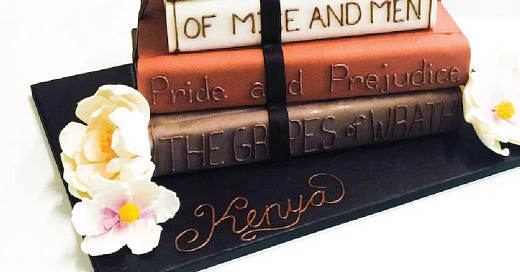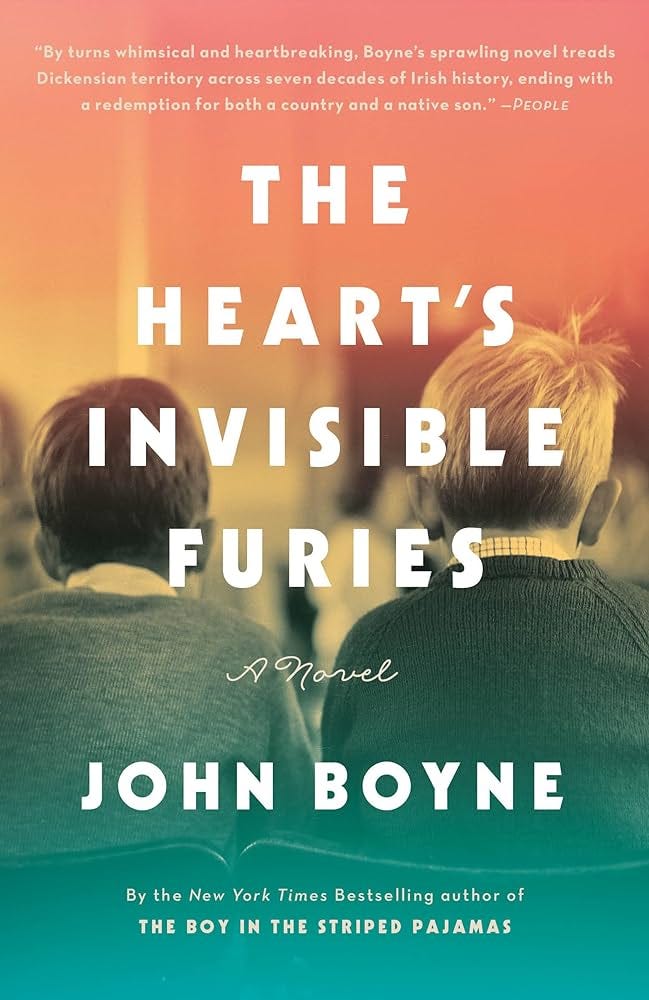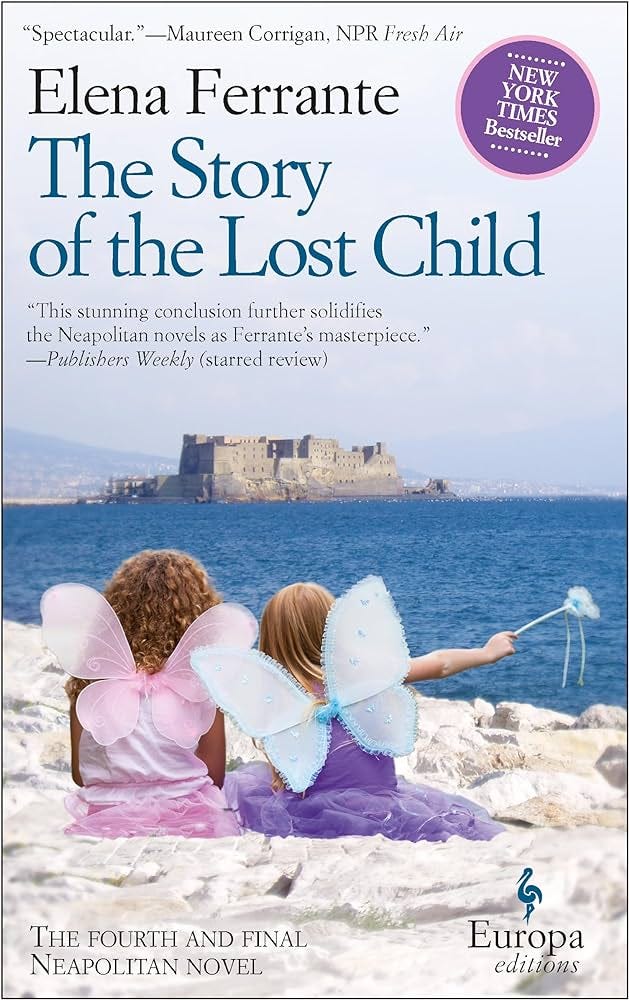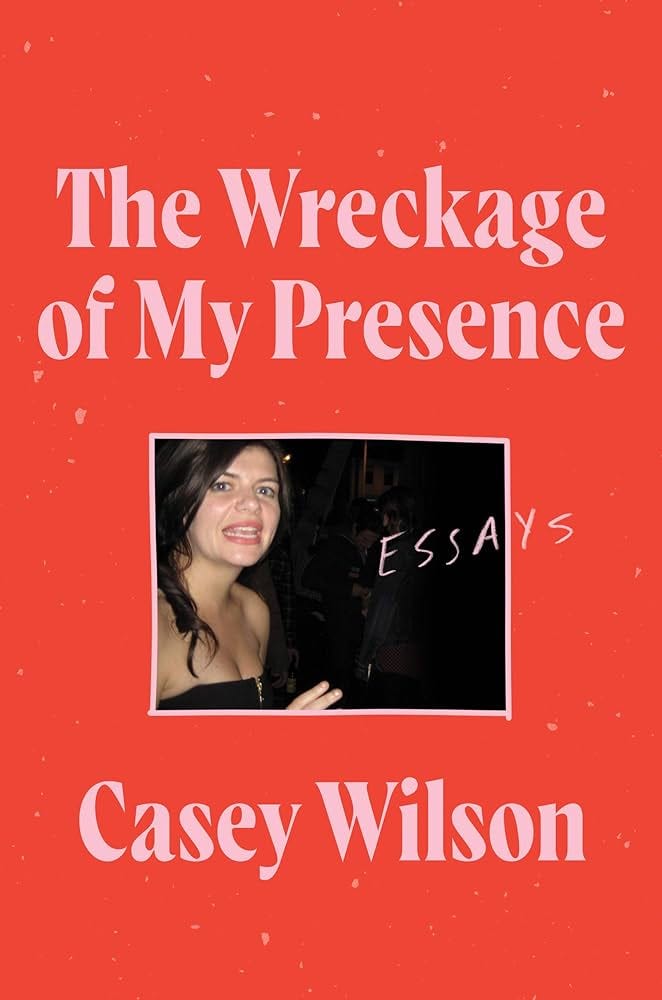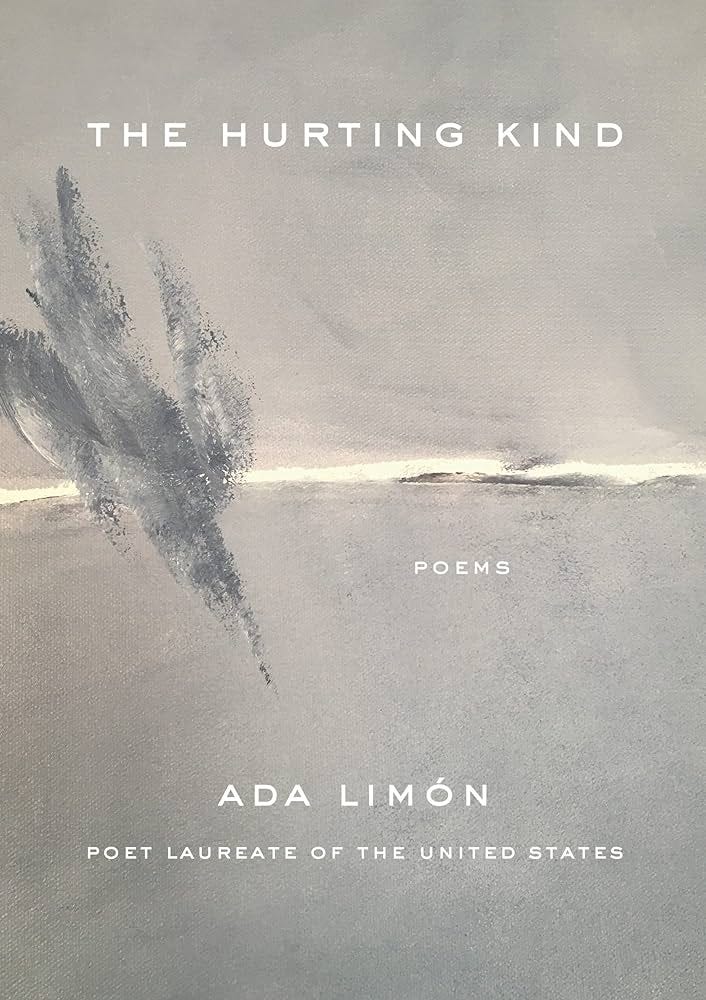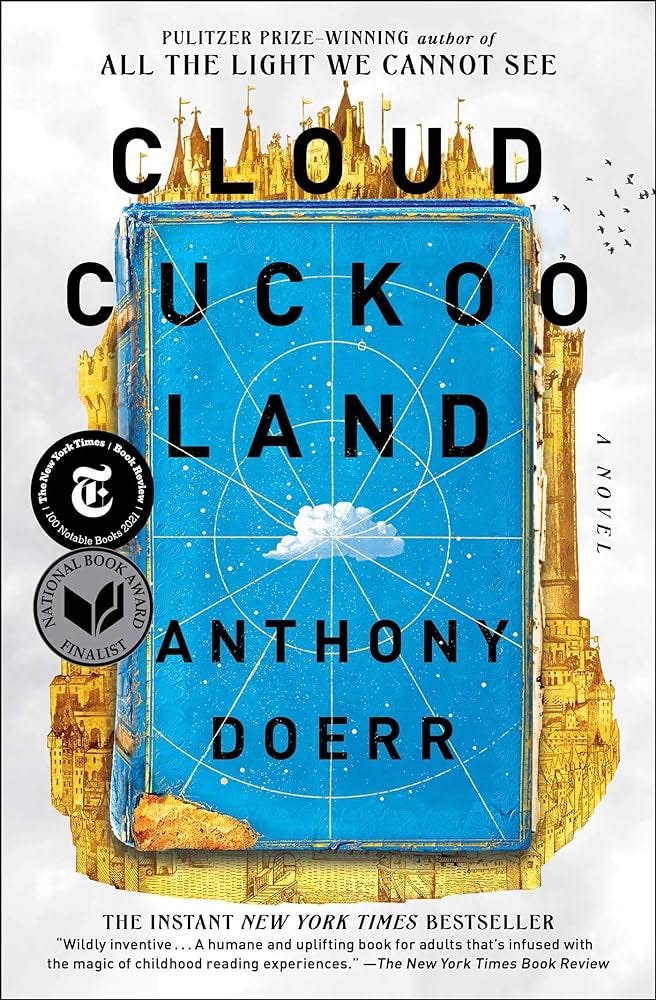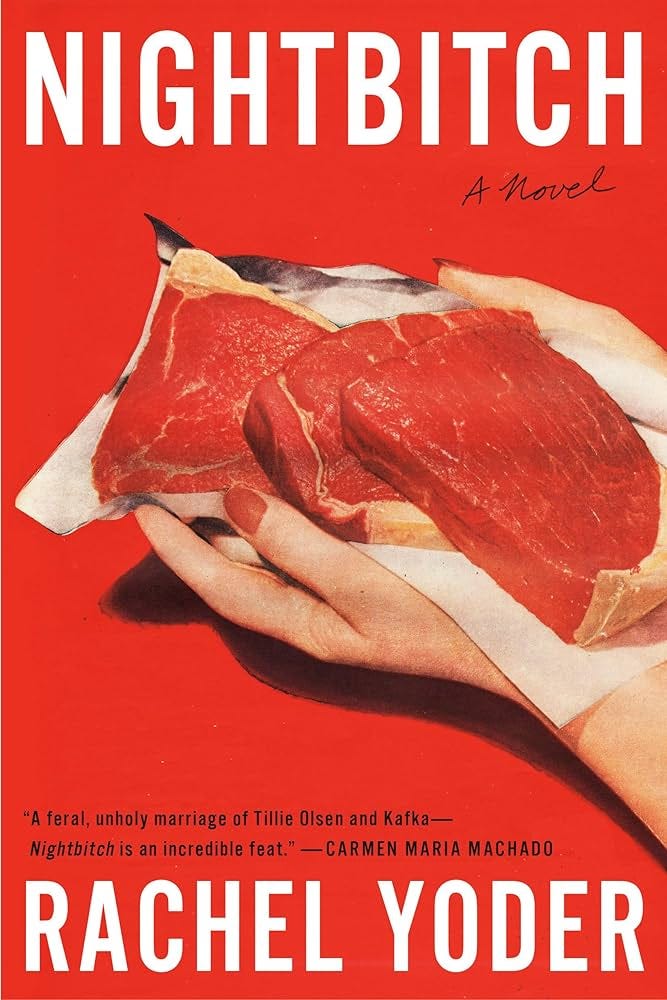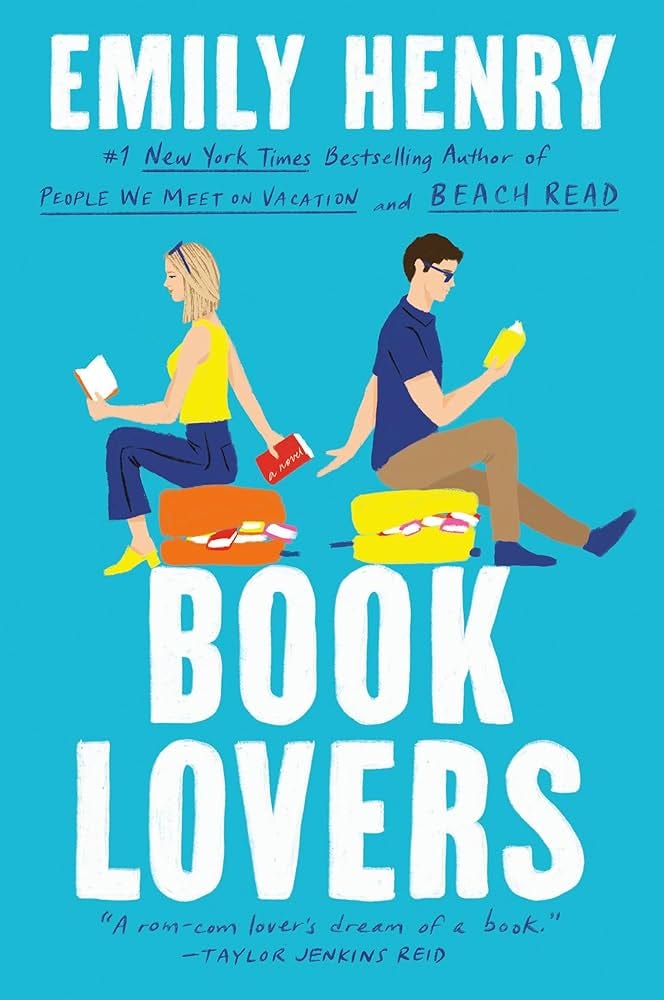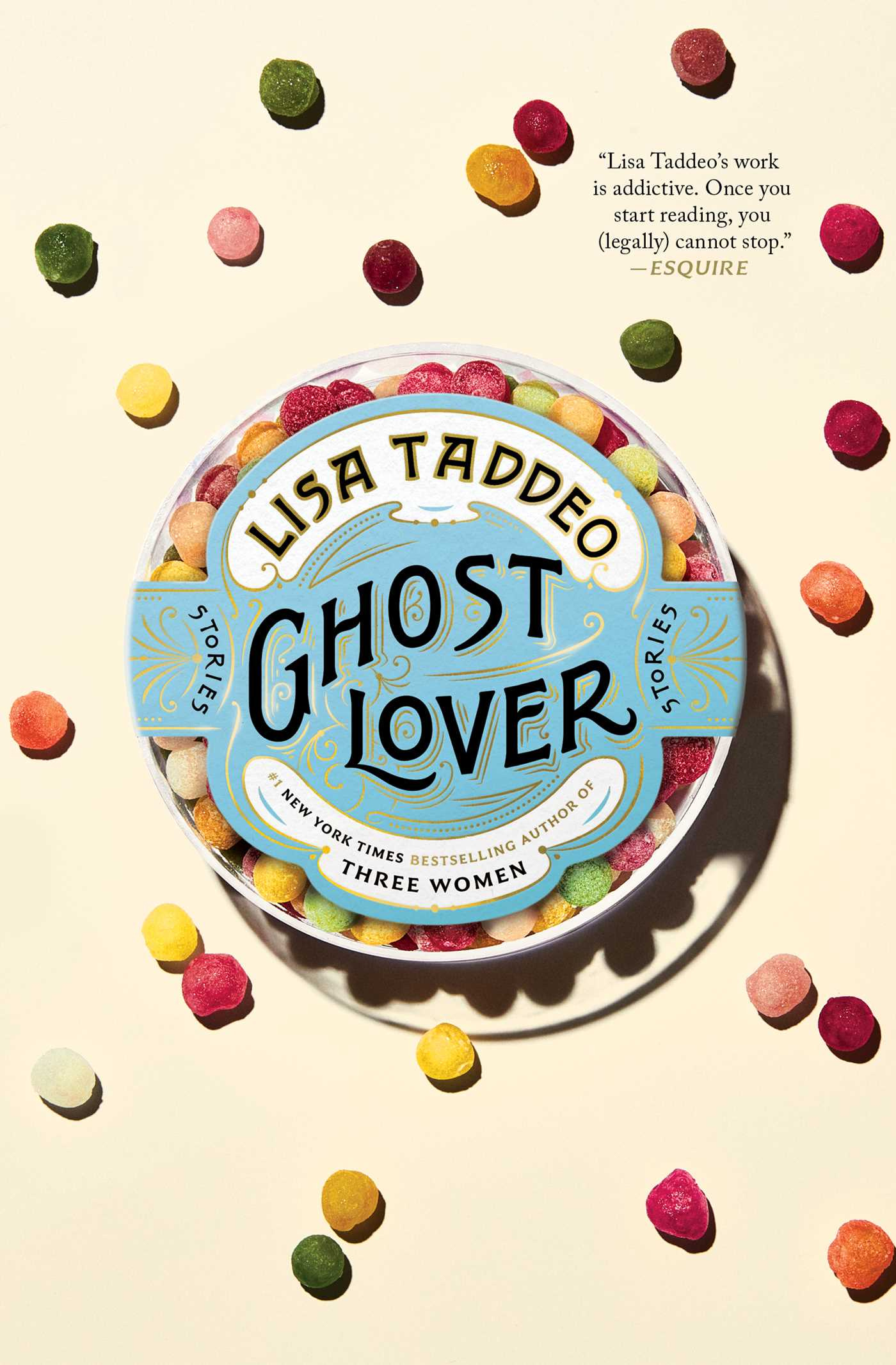I promised some sort of gift to my subscribers when I hit the big 1-0-0. We have since surpassed this milestone, and this isn’t much of a gift, but I figured I could take this opportunity to share some of my favorite books with you that I would love for you to read if you haven’t already. You probably have because you likely recommended them to me or I never shut up about them. But if you haven’t, well, this must be a big fat treat for you. nom nom.
my most favoritestestest books of all time
These are some readwithmith 4.7s/goodreads 5s that I will go to my grave recommending and will fight anyone who feels otherwise. A note that I read a bunch of these before I developed my critical vernacular and became a hater, so it’s possible I need to revisit and will become a subsequent hater of these as well.
***content warning for every single one of them because the best books are usually the most depressing***
The Heart’s Invisible Furies by John Boyne — I am a speed reader, but even I need about two or three days to read an 800-pager (obviously way longer if I’m not into it). This one was my first big binge read in quite some time and I went absolutely feral, finishing at around 4 AM and covered in tears. Think Portrait of the Artist but way gayer and funnier. As we follow our main character from childhood to old age, many of his experiences defined by his queerness, we also see mirrored the social and political evolution of Ireland and other Western countries. It’s an incredible feat. You’ll laugh! You’ll cry! You’ll be upset with me for what I’ve wrought on your heart but also eternally grateful. So you can decide if that’s worth the risk.
Anxious People and Beartown by Fredrik Backman — TWO Backmans! I’m going to talk about these together because he has a really specific writing style and tone and if you’re with it, you’re with it, but if you’re not into his vibe, that shit is tedious and corny as hell. As it stands, I’m very with it. I find his writing to be pretty brilliant and absorbing. All of his novels that I’ve read tow a delicate balance between overcoming trauma and mental health disorders and humor and a lot of loooove. Anxious People blew me out of the water with its twisty heist story and emotional heft, a book so good that even my anti-audiobook brain couldn’t stop me from binge listening. Beartown is a devastating but hopeful examination into the human condition via a small-town hockey team. This freaking Swede, even in my least favorite works of his, has the power to make me feel.
Conversations with Friends by Sally Rooney — again, Rooney has a really particular free-flowing, dialogue-heavy, sparse scene setting style, and you either love or hate it. Brother, you already know I love it. She sort of popularized the 2010s sad hot girl trope, albeit in its early skinny white girl stages (Sally Rooney make one of your main characters not have an eating disorder challenge UGH). But it is an absolutely brilliant portrayal of a young woman who feels rather lost, as I suspect most of us in our early 20s did (or do, tho I’m choosing to believe that no one is younger than me) in the midst of a gripping romance plot. It’s a book meant for those of us who are drolly unfeeling but secretly hopeless romantics, and I want to reread it all the time.
The Story of the Lost Child (and every book in the Neapolitan novels quartet) by Elena Ferrante — Few sagas have the emotional payoff of the Neapolitan novels. As we follow frenemies Elena and Lila from childhood to old age, we become deeply invested in the twists and turns of their relationship to each other and the world around them. I still think about the chills I got after reading the last few pages of Lost Child, which is the last book in the series and the reason why it’s listed as one of my all-time favorites. No spoilers, obviously, but holy fucking shit. For a series that takes its time exploring the years of their lives, it’s anything but tedious — I really thought it would be when I started! But I PROMISE you it’s worth reading all four.
Circe by Madeline Miller — People love Song of Achilles, and I think it’s a lovely, if meandering book, but in my humble opinion, Circe is better. Look, it’s Percy Jackson for adults. Must I say anything further? I needn’t, but I will. I found this to be both massively entertaining and refreshing. I know not everyone is into the modern-day mythology adaptations, and I get it, and I’m not well-versed enough in the source material to say anything on that, but what I CAN say is that this is just a fucking entertaining book and treatise on the humanity of female characters in traditionally male-centric stories. It’s epic and touching and somehow pretty human despite taking place in the world of the gods. I read this all in one frenzied go and I suspect that I’ll do it again.
The Wreckage of my Presence by Casey Wilson — You’ve seen Casey Wilson in supporting roles in television and movie comedies, in a brief stint on SNL, and, most pertinently, in the lead role of Happy Endings, a show that got cancelled in about 2013 and one that we dearly deserve justice for. I did not expect to love her debut book of essays so much. A major focus of the book is Wilson’s mother’s sudden death — right as she starts to break into show business — and the immense emotional and philosophical impact this has on her life. She’s written something really profoundly surprising and special and I’d totally recommend it to anyone, regardless of their knowledge of her work.
A Little Life by Hanya Yanigahara — I’m a bit reluctant to include this because my opinions of it have really fluctuated since reading it. There’s warranted controversy. Yanagihara’s literary canon seems to exist to make her queer male characters suffer. But at the end of the day, the stunning prose and epic storytelling make this a literary triumph. Few books exist solely as 700-page trauma dumps. Those that do are pretty bad. (See: To Paradise, also by Hanya Yanigahara, a book whose absolutely exhausting and hellish reading experience I will never recover from). But, against all odds, this one works quite well and quite devastatingly so.
The Idiot by Elif Batuman — if you want a template for a hot sad girl novel that’s actually funny and deep and devastatingly relatable and a joy to read, this is it. Think of it as the less sexy love child of the aforementioned Conversations With Friends and Writers and Lovers but is somehow its own brilliant thing. Sure, a story about a bookish child of Middle Eastern immigrants with zero street smarts going off to college seeking out a smooch does pander very specifically to me, but I do think anyone with a heart and a brain and a sense of humor would enjoy this. Books like these are all about the strength of your protagonist, and Selin is one of the best-written sad hot college girls there is. She perfectly captures the ludicrousness and self-centeredness of your late teenage years. God, it’s so good.
The Hurting Kind: Poems by Ada Limon — I love poetry and this is some of the best I’ve ever read. It centers on nature as a metaphor for human relationships and love and loss and it’s pretty incredible — the poems are stunning in and of themselves, but as a cohesive collection, it’s something even better. Her writing is beautiful, but the themes plainly relatable. I can’t write like her, but I can certainly understand the fraught but meaningful relationships she holds with family and friends and lovers. Couching everything in the general theme of nature turns out to be a pretty excellent way to represent wide-open feelings. I just can’t recommend reading this whole thing cover-to-cover enough because it’s a real triumph of the poetry collection.
Say Nothing: A True Story of Murder and Memory in Northern Ireland by Patrick Radden Keefe — normally, I say, WHY would I read a book about something REAL when I could read FICTION!!! But this book is worthy of the hype in pretty much every way possible and has me regretting every year I put this off. It’s an incredibly strong showing of narrative nonfiction; I learned quite a bit while also finding myself deeply immersed in the real-life events and notable people portrayed in the book as if they were fictional characters. You’d be hard-pressed not to spend the book wrestling with complicated feelings of disgust and empathy for every side involved. And it’s an incredible journalistic feat to boot — not only does Keefe weave together a fascinating story, some of the discoveries in his research are actually jaw-dropping. So, so good, and worth all the time it might take to read.
Three Women by Lisa Taddeo — There is perhaps no other author I’ve seen such a polarized reception to. There are people who hang on to her every word and others who really, really hate her. And I get it! She writes pretty specifically about female rage and subjugation and that can certainly get tedious if not done well (I am not particularly fond of her first novel, Animal). However, I think Three Women is a brilliant undertaking and a phenomenal work of nonfiction. Taddeo basically follows three women’s stories and lives in detail. All of them have had some sort of sexual trauma (trigger warning) in different forms. I probably enjoy it so much because it reads like fiction. This is also one I’d actually really recommend listening to on audiobook, which I don’t do much anymore, but I think the separate voices really enhance the narration and up the stakes and emotional impact.
In the Dream House by Carmen Maria Machado — This is not one I revisit often (and perhaps never will), but you’d be hard-pressed to find a more ambitious work of narrative nonfiction, albeit in an entirely different way from Say Nothing. It’s a highly stylized memoir detailing the abuse she suffered at the hands of her former female partner, and it reads like fiction, which is probably why I loved it so much. Every page is different, containing a mix of flashbacks, research, and other emotional detours, but somehow flows incredibly well and works cohesively to tell a brilliant and devastating story. The stylistic choices both enhance the reality of the subject matter at hand while also crafting a beautiful story. It’s just a phenomenal work of literature.
honorable mentions
Some recent favorites that didn’t quite crack the 4.7 threshold but ones I absolutely love to recommend:
Lit fic:
The Bee Sting by Paul Murray — a generationally traumatized family for the gay Irish lit lovers
Demon Copperhead by Barbara Kingsolver — a book that actually treats the opioid crisis with the tact and narrative depth it deserves
Cloud Cuckoo Land by Anthony Doerr — you just gotta get past page 200 and then it’ll make sense I swear
Crossroads by Jonathan Franzen — a preacher’s family with LOTS of sexual angst
Less by Andrew Sean Greer — a display of queer joy? in a book? unheard of
Tar Baby by Toni Morrison — some of the best exchanges of dialogue you will ever read
Sad/hot/angry/artsy girls:
this is its own genre, don’t fight me
All This Could Be Different by Sarah Thankam Mathews — sparse, hilarious, brilliant, sad, hot, queer, etc.
Dreaming of You by Melissa Lozada Olivia — a poetic work of prose about a Brooklyn poet told through the music of Selena and the start of my MLO obsession
Nightbitch by Rachel Yoder — the REAL Female Rage: The Musical
Writers and Lovers by Lily King — hilarious sad hot novelist is drowning in debt, dating weirdos, and, most devastatingly, lives in boston
Romance:
Book Lovers by Emily Henry — the finest romantic comedy ever written. people who don’t like it are just denying themselves life’s simplest pleasures
Fourth Wing by Rebecca Yarros — my favorite romantasy. worth the hype. dragons. xaden. magic. xaden. sex with xaden. what was I saying?
The Wisteria Society of Lady Scoundrels by India Holton — a goofy ridiculous novel about female pirates who fly houses. the definition of a ROMP
Short stories:
Ghost Lover by Lisa Taddeo — women should be hating men, but they be hating each other :(
Difficult Women by Roxane Gay — she’s known for her cultural criticism now, but Gay’s prose is on another level. fiction!!!!!
Nonfiction:
Why Fish Don’t Exist by Lulu Miller — a very, very surprising book about, let’s say, taxonomy …
Thanks for the laughs and putting up with my more sporadic mailings as of late. And when we hit 200, you’ll get my least favorites. That’ll be more fun.

